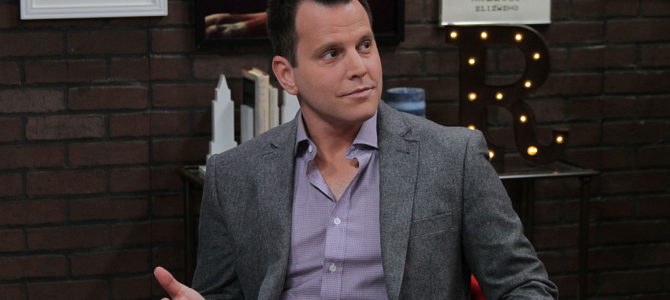
There’s trouble in paradise, as the Intellectual Dark Web is openly splitting up online, in what could be termed as a show for the times. For those who don’t know, the Intellectual Dark Web (IDW) is a term that got popular after an essay by Bari Weiss for The New York Times last year, which featured a group of public intellectuals.
It was widely mocked even then, not just for its tortured sophomoric prose, or bizarre accompanying photo shoot seemingly straight out of a Simon Pegg comedy, but the fundamentally ironic premise of a glossy multi-pager in the most influential paper of the world about a bunch of people claiming viewpoint oppression. But that’s beside the point.
It did highlight that, amid all the partisan rancor, especially post-Trump, there are still some people who strive to move past petty bickering and try to have a conversation. Put simply, one can ridicule the end product, but the intention was honorable. Unfortunately, the IDW was not immune to the inherent contradictions that every big-tent arbitrary grouping inevitably faces. They are arbitrary, with no fixed rules, and there’s hefty ideological discontent within.
The IDW Splits Apart
Some are trying to avoid that fate: feminist Christina Hoff Sommers for example, recently invited Helen Andrews to her podcast, although they are ideologically opposed. Sommers and Andrews had an amicable chat, the way it should ideally be.
Likewise, Claire Lehmann’s online magazine Quillette has so far avoided Conquest’s Second Law, which dictates “any organization not explicitly right-wing sooner or later becomes left-wing.” But things are ripping apart at the seams, as writers Cathy Young and Uri Harris wrote a series of articles accusing podcast host Dave Rubin of being “too lenient” with his guests, which led Rubin to rant.
I am not sure what the point of it all was, as there’s no compulsion to be hostile to any guest. In fact, old-school journalism theories dictate letting the guest speak mostly uninterrupted. This might be a subtle push to tar Rubin on the basis of guilt by association, especially with people like Lauren Southern (which would tar Young as well). Regardless, this resulted in a massive online flare-up.
Likewise, Heather Heying recently understood the limitations of utopian liberalism after a hit piece about her by a self-declared Marxist in Los Angeles Review of Books. When she aimed to engage the person, she was promptly blocked on Twitter. Elsewhere, Jordan Peterson and the IDW remain a source of contention in, well, other IDW platforms.
Perhaps the IDW Should’ve Never Existed
The Weiss article tried to tie together a bunch of people who are methodologically similar and have a few ideological outliers. The one thing that ties this disparate group together is support for free speech. Besides a few outliers, their political stances are largely otherwise leftist.
Sam Harris and Sommers, for example, fall within the classical neo-liberal/neo-conservative spectrum, broadly free market and socially liberal (pro-LGBT and pro-choice, for example). Bret Weinstein and Heying, the pro-free speech academics hounded out of Evergreen State College, also fall within traditional liberal social policy margins, but could be economically further to the left.
Lehmann, the editor of Quillette, the mothership of IDW ideas, falls in the pro-free speech camp while supporting a more controlled capitalism and social welfare policies for the poorer segments of society. Eric Weinstein, another IDW stalwart considers himself a pro-free speech liberal (as do Rubin and Joe Rogan).
The only two outliers in this group are Ben Shapiro and Peterson. Shapiro, who is Jewish, faced intense far-right attacks during the early days of the 2016 campaign. But he and often Peterson fall on a pretty standard social conservative platform, with more focus on personal responsibility, choices, and consequences.
But clashes were inevitable. The IDW may appear to be largely a group of centrists. But there’s quite some distance between the values of Heying and Peterson, for example, on abortion. The only centrism possible, therefore, in this context, is one of methodology, and not of epistemology or ontology.
To put it simply, methodological centrism would entail everyone deciding on the method: free speech, open debate, giving anyone, regardless of his political position, a platform. Instead, there was a push from certain quarters for ontological centrism—finding a median position, which, centered around a neo-liberal/neo-con consensus.
Take for example, social conservatism. In an ideal IDW world, there shouldn’t be any problem with what Peterson believes about social hierarchy, what Shapiro believes about abortion or LGBT politics, or who Rubin invites in his show. But look through the articles or tweet threads bashing Peterson or Rubin, and the unsustainability of the project seems evident. Interestingly, Peterson, a conservative, was the only one to foreshadow this end game, when he said the result of this fame would be catastrophic.
The Enforcement Paradox
Here is what we call the enforcement or implementation paradox. Imagine a bunch of people coming and sitting at a table to discuss something. You often hear self-proclaimed liberals suffering from an intense Dunning-Kruger effect, saying that everything should be determined by “facts and science,” as if the determination of what those facts and science are doesn’t matter in the long run.
But what happens when there is a disagreement? Who decides, who arbitrates, and who brings down the hammer? What happens when two people who are fundamentally opposed on the question of abortion disagree on a philosophical and ideological level? What if one is a liberal and the other is a reactionary — do they co-exist, or does one dub the other his enemy and a barrier to progress (and therefore evil)?
The point being, there can only be methodological centrism, which simply allows free speech and agrees on the rules without any enforcement, and there cannot be median-level ideological centrism without excluding ideological opponents. The moment one excludes ideological opponents, this whole façade of centrism fails. Centrism then turns to a dogma itself, where beliefs range from A all the way to B.
The same reason Germany cannot be a leader of the liberal order is philosophically the same reason that IDW is doomed—someone needs to bring down the hammer in times of need, and that would mean deciding what are the boundaries of acceptable thoughts and company, which would bring down this farce of centrism on its face. After all, who would decide that, and by what power and on what authority?
Since we live in an ideological time, simply agreeing on the norms of free speech and open debate should be enough, and centrism should be relegated to its methodological roots, instead of being worn as a badge.









